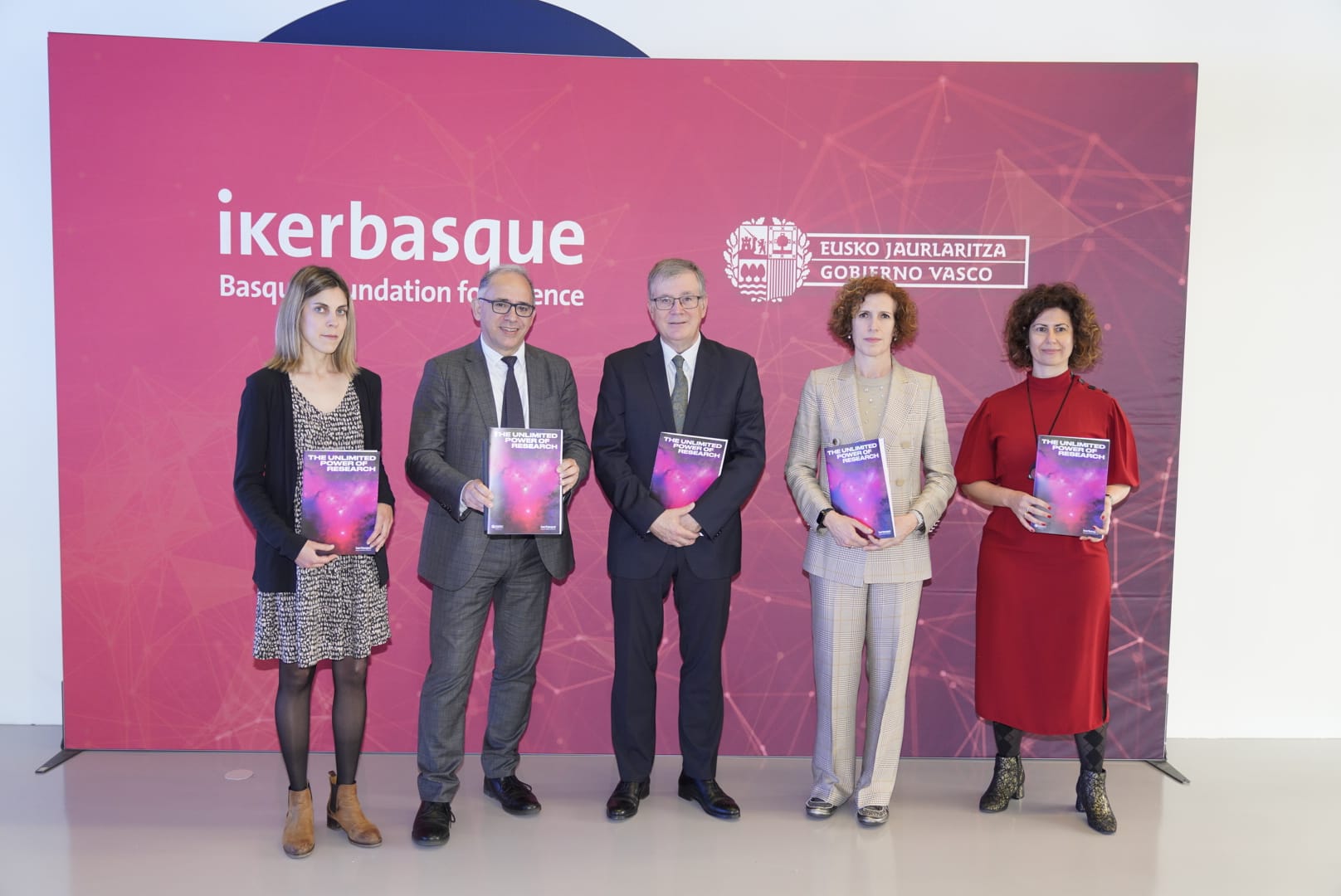
At the end of 2023, Ikerbasque had a total of 191 researchers with extensive research experience and leadership capacity, 106 young researchers with whom it aims to promote a pool of high-level young people and 76 Research Associates, a category that complements the previous two and seeks to cover the different stages of the research career. Their research work was notable in scientific publications; Throughout the year, they published a total of 1,530 articles in indexed publications, that is, in highly qualified editorial media on an international scale, which represents an increase of 6% in relation to the data obtained the previous year.
The total amount of funds obtained by Ikerbasque researchers during 2023 amounted to 45,437,886 euros (5 million more than in 2022). Since 2007 they have managed to bring a total of 380 million euros to the Basque Country. Out of a total of 1,222 projects (164 more than the previous year) that had external funding, twenty-three had funding from the ERC (European Research Council), the most prestigious institution on the old continent in terms of the promotion of ambitious research projects at the frontiers of knowledge, and at the end of last year 1,639 people worked in the groups led by these researchers. Likewise, researchers have participated in the creation of 37 spin-offs, business initiatives that are characterized by basing their activity on the exploitation of new processes, products or services based on the knowledge and results obtained in their research.
The people recruited by IKERBASQUE around the world to carry out their work in universities and R&D centers in the Basque Country come from 35 different countries and are mostly men, 71% compared to 29% women. In relation to their area of knowledge, 46% are specialists in experimental sciences, 25% in medical sciences, 15% in engineering and 14% in social sciences and humanities. Ikerbasque researchers come from the most prestigious centers in the world such as MIT, Harvard University, Oxford University, Stanford University, CNRS or Max Planck Institute.
The results obtained in 2023 allow us to affirm that Euskadi is positioned as a European benchmark in science; We are already recognized internationally as a region with advanced research, with Basque research groups of international level and where the appropriate conditions exist to develop research of international stature. Proof of this is that in 2023 the European Commission chose the Ikerbasque researcher attraction program as one of the best European initiatives for scientific development. To date, the different Ikerbasque programs have obtained 28 million euros from the European Commission.
Some notable works
Among the works developed by the IKERBASQUE researchers and the notable publications over the last year, the following can be highlighted:
- Global research shows that cities are not taking advantage of the full potential that nature-based solutions offer. This is a study in which Marta Olazabal and Unai Pascual, Ikerbasque researchers at BC3, participated and which was published in the journal Nature Sustainability.
- Crucial discovery in Alzheimer's research: An international study in which Ikerbasque Researcher at the Achucarro center Amaia Arranz participated, shows a mechanism of neuronal death in Alzheimer's disease, which can open the doors to new therapies or drugs. The study was published in the prestigious journal Science.
- Ancient genomes from the Balkans reveal how Slavic Europe was formed: Iñigo Olalde, Ikerbasque researcher at the UPV/EHU led, together with the Institute of Evolutionary Biology (IBE: CSIC-UPF) and Harvard University, a study in which have reconstructed for the first time the genomic history of the first millennium of the Balkan Peninsula. The work has been published in the prestigious journal Cell.
- Ultrasmall calcium carbonate nanoparticles to improve the diagnosis of atherosclerosis: Jesús Jiménez Cabello and Susana Carregal, both Ikerbasque researchers from CIC biomaGUNE, have designed and compared nanoparticles that provide information on the phase of plaque development in atherosclerosis. In this work, published in the prestigious journal ACS Nano, may lead to the development of new therapeutic strategies for breast cancer.
Regarding their destinations, 126 Ikerbasque researchers have been assigned to the UPV/EHU. The remaining 247 have joined the rest of the Universities (Deusto and Mondragon Unibertsitatea) and the research centers, including the nine BERC (Basque Excellence Research Centre), dependent on the Department of Education.
The complete list of existing BERCs is as follows:
- Achucarro – Basque Center for Neuroscience
- BCMaterials- Basque Center for Materials, Applications and Nanostructures
- Polymat – Basque Center for Macromolecular Design & Engineering (Donostia)
- DIPC - Donostia International Physics Center (Donostia)
- CFM-MPC Materials Physics Center (Donostia)
- Biofisika Institutua. Basque Centre for Biophysics de Bizkaia (Leioa)
- BC3 - Basque Centre for Climate Change
- BCAM - Basque Center for Applied Mathematics (Bilbao)
- BCBL - Basque Center on Cognition, Brain and Language (Donostia)
In addition to these nine centers of excellence and the three universities mentioned (UPV/EHU, Deusto and Mondragon), among the recipients of the researchers hired by IKERBASQUE there are also the Cooperative Research Centers (CIC) biomaGUNE (biomaterials), bioGUNE (biosciences ), energiGUNE (energy) and nanoGUNE (nanosciences), as well as the health research institutes Bioaraba, Biobizkaia and Biogipuzkoa, and the research centers Azti, Neiker, Tecnalia and Tecnum (University of Navarra) in addition to Globernance (research and dissemination of political thought) and the IISL/IISJ (International Institute of Legal Sociology of Oñati). In total, 25 Basque universities and research centers benefit from the recruitment of international researchers.
.png)
